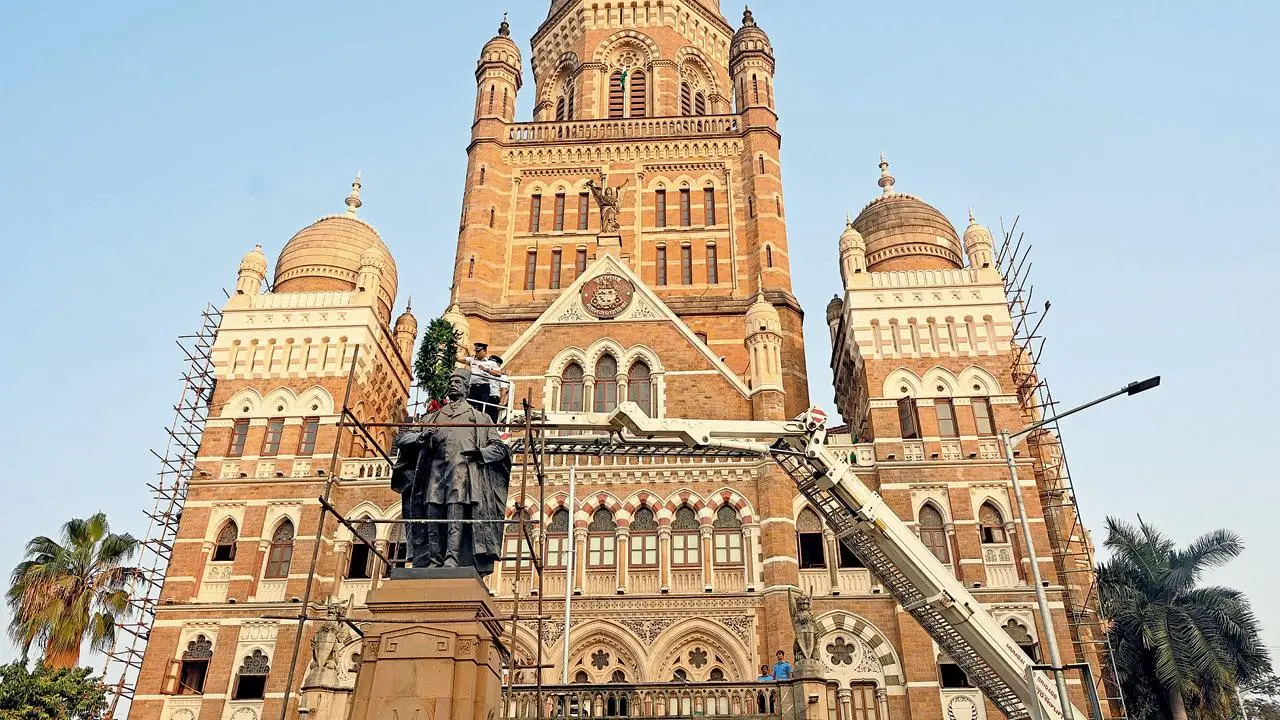The Brihanmumbai Municipal Corporation (BMC) has set a new benchmark by collecting a record ₹6,198 crore in property tax for the financial year 2024-25. Nearly achieving its ambitious target of ₹6,200 crore
The BMC has successfully brought in 99.97% of its target revenue, a significant boost for the city’s economic framework and ongoing civic initiatives. The rise in property tax revenue reflects not only the city’s steady urban expansion but also highlights the BMC’s growing emphasis on sustainability, environmental initiatives, and transparent governance. The BMC’s achievement is especially noteworthy given its reliance on property tax as a core revenue source to fund infrastructural development, urban services, and environmental projects. Over the years, the corporation has worked diligently to streamline its tax collection systems, employing a combination of digital tools, tax reforms, and increased outreach to property owners. This success is also indicative of Mumbai’s evolving real estate market, which continues to attract both local and international investors, further driving the city’s fiscal growth. Among the 24 administrative wards of Mumbai, G South Ward, encompassing prominent areas such as Lower Parel and Worli, contributed the lion’s share of the revenue, with ₹624.50 crore. Other high-performing wards include K East and K West, with collections of ₹526.64 crore and ₹504 crore, respectively. These areas have traditionally been some of the city’s most sought-after locations, where the real estate boom continues to generate substantial income for the municipal coffers.
While the fiscal surplus from property tax is undoubtedly an accomplishment, it also brings with it an inherent responsibility to channel these funds towards eco-friendly, sustainable urban growth. The BMC’s budget for FY 2025-26, which has been earmarked at ₹74,427.41 crore, represents a 14.19% increase over the previous year. This increase is not just a reflection of growing revenues, but also the increasing pressure to fund infrastructure projects that are aligned with environmental sustainability and long-term urban resilience. The BMC’s agenda for the coming financial year prioritises several critical sectors, including ongoing infrastructure projects, digital transformation, and environmental initiatives. Importantly, it has set aside considerable resources for enhancing Mumbai’s green spaces, promoting renewable energy in public infrastructure, and rolling out waste management solutions that focus on zero waste. A key focus will be making the city’s transportation network more sustainable through the development of electric vehicle (EV) charging stations, renewable energy-powered public transport, and improved pedestrian facilities.
Additionally, the corporation’s agenda includes initiatives to boost the city’s resilience to climate change. With a growing focus on addressing the city’s environmental impact, the BMC is increasingly integrating eco-friendly practices into its development plans. From green building certifications to energy-efficient lighting in public spaces, Mumbai is gradually evolving into a model of how urban growth can coexist with sustainable practices. One of the major aspects of the BMC’s fiscal strategy for the year ahead also includes improving the city’s infrastructure to make it more inclusive and gender-neutral. A significant portion of the budget will be devoted to ensuring safer, more accessible spaces for women and differently-abled individuals, with plans for better street lighting, women’s safety patrols, and inclusive public facilities. This demonstrates the BMC’s commitment to creating a more equitable urban environment that caters to all citizens.
Experts highlight that this steady growth in property tax collections reflects not just the real estate boom but also the expanding economy of Mumbai. As the country’s financial capital, Mumbai continues to evolve as a major economic hub. However, this growing fiscal power brings with it the need for greater transparency, inclusivity, and sustainability in city governance. Critics have also pointed out that while property taxes form a significant portion of municipal revenue, there remains a need for a more equitable distribution of these resources, especially in Mumbai’s growing suburban and underdeveloped areas. As Mumbai continues to face challenges related to population density, traffic congestion, and environmental degradation, the BMC’s responsibility extends beyond revenue generation. It must ensure that the funds collected are effectively channelled into creating a greener, smarter, and more resilient city. Moreover, the success of the property tax collection highlights the importance of effective civic engagement. Ensuring that citizens understand the value of paying taxes for long-term infrastructural growth and sustainable urban development will be essential as the city moves toward future growth.
In conclusion, the BMC’s record-breaking property tax collection stands as a symbol of Mumbai’s dynamic growth and increasing civic engagement. As the city looks to the future, there is a growing recognition that financial prosperity must be balanced with social equity and environmental stewardship. Through its investments in green infrastructure, gender-neutral policies, and sustainable urban planning, Mumbai is positioning itself as a global leader in the transition to environmentally conscious, inclusive cities. The road ahead will require careful planning, innovative thinking, and a collective commitment to building a city that not only thrives economically but also nurtures the well-being of all its citizens.


